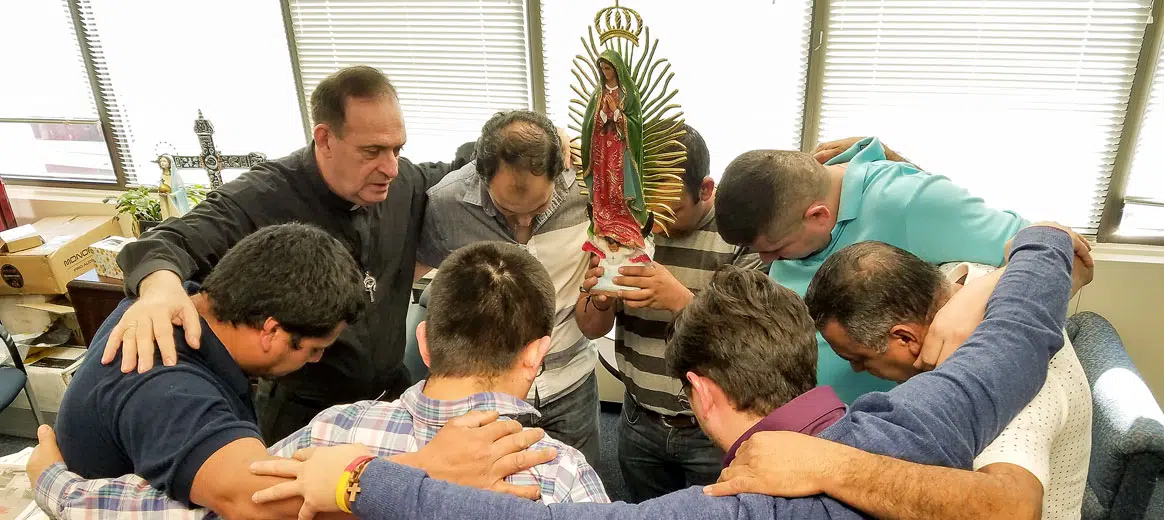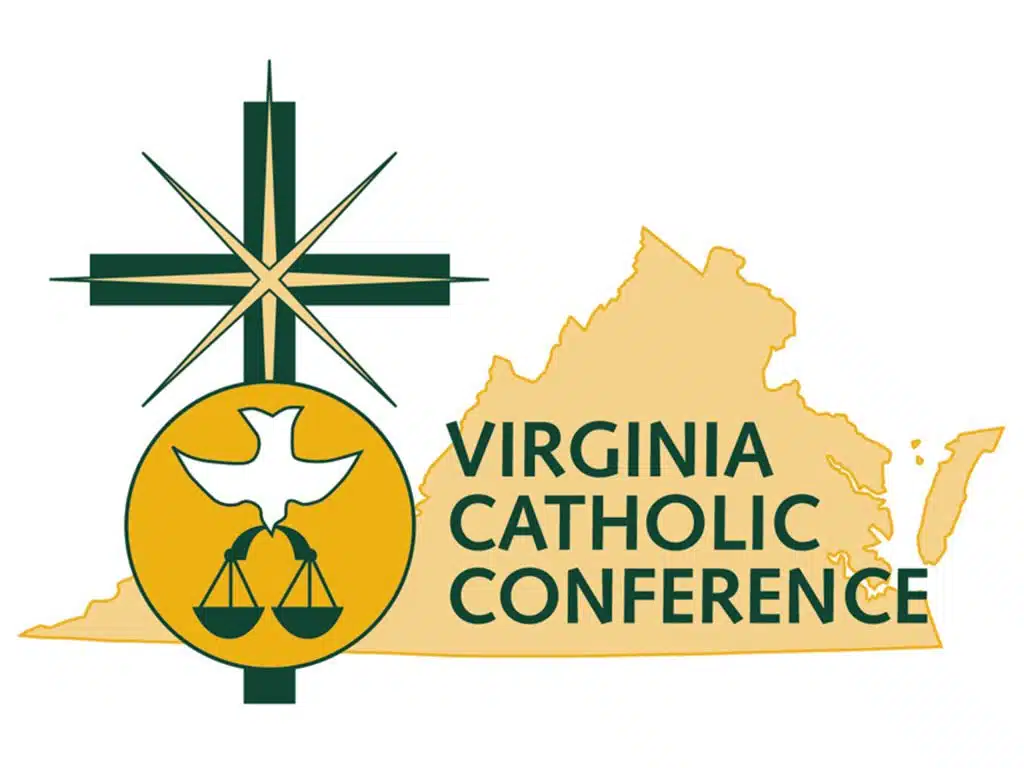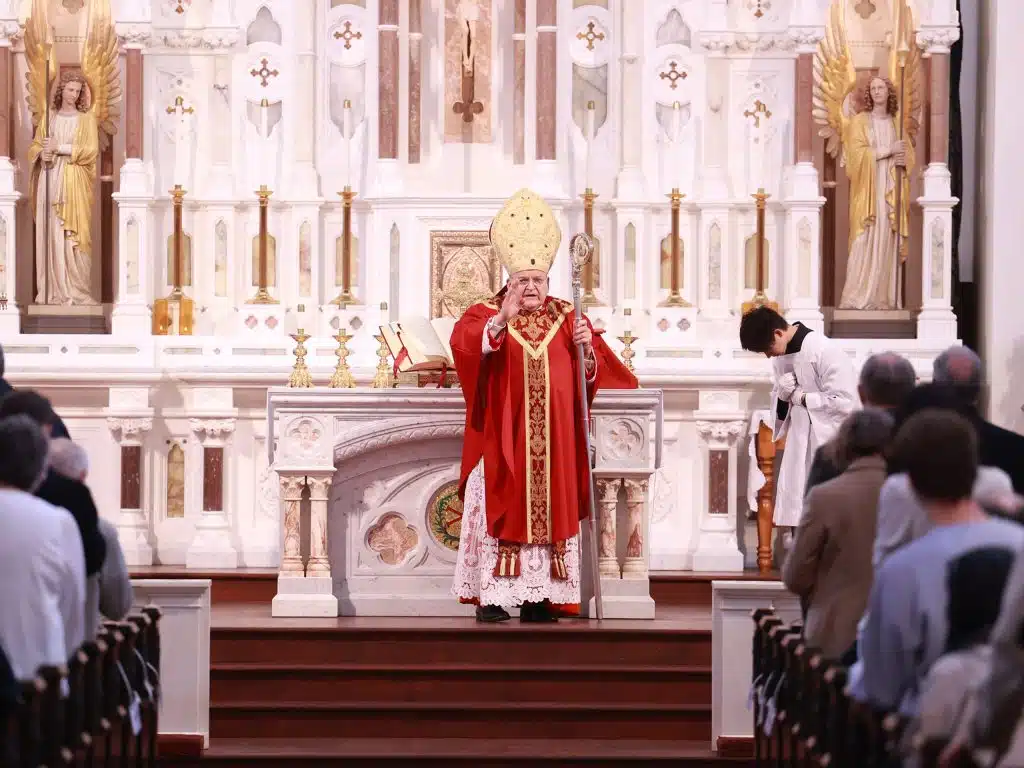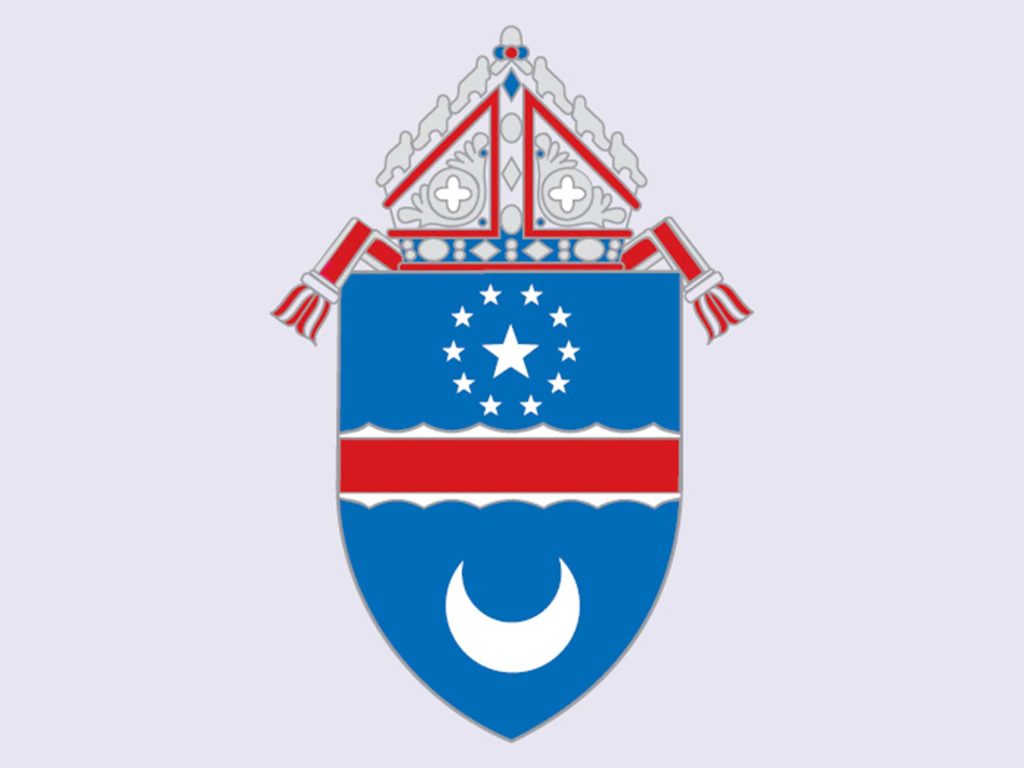Last week,
Father Mauricio Pineda, parochial vicar of All Saints Church in Manassas, heard
from a woman whose husband had been detained by immigration authorities. Father
Pineda officiated at their marriage a few years ago. The couple just had a
baby. She didn’t know what to do.
Father Pineda gave the best advice
he could: Trust God. Keep praying hard. And he promised to pray for them, too.
The conversation was one of many
such calls Father Pineda, and priests throughout the Arlington Diocese, have
taken during the last few weeks amid increased enforcement of immigration laws.
In a time of personal crisis, undocumented immigrants are turning in large
numbers to their church for spiritual counsel and practical legal assistance
through Catholic Charities.
“I’ve been living in this country
for 18 years now and I’ve never seen this kind of pressure and fear,” said
Father Pineda, who is originally from El Salvador.
“My concern is when I visit families,”
said Father Pineda. “I find mothers who are pregnant. They are afraid to go to
the doctor. They don’t want to send their kids to school. It’s very
heartbreaking. I suffer a lot when I see that.”
News of raids and detentions had
spread among the undocumented population well before a Feb. 21 memorandum from
the Department of Homeland Security outlined a policy of enhanced enforcement
of existing immigration laws. The memo directs Immigration and Customs
Enforcement to hire 10,000 agents, and expands priorities for deportation
beyond those convicted of a violent criminal offense. The expanded priorities
include: those who are charged but not convicted of a crime; have
misrepresented themselves in any official matter before a governmental agency
or engaged in fraud; abused any public benefit program; are subject to a
deportation order but have not left the country; or pose a risk to public
safety in the judgment of an immigration officer.
Undocumented immigrants who have
been in the U.S. less than two years, no matter where they are captured, now
also may be subject to “expedited removal,” bypassing due protection such as
court hearings. Previous policy had limited such removals to immigrants in the
country no more than 14 days and arrested within 100 miles of the border.
ICE also plans to publicize crimes
committed by undocumented immigrants, rescind privacy protections and build new
detention facilities.
Some undocumented immigrants,
already used to staying below the radar, are now taking extreme precautions to
avoid detention.
“There’s a lot of confusion inside the
Hispanic communities. Some are living a very tragic situation,” said Father
José E. Hoyos, director of the diocesan Spanish Apostolate. “Some of them are
too afraid to go to their work sites, to go to the supermarket, to take the
children to schools … They are coming to my office asking for help, like ‘What
about, Father, if they took my husband or my children or my wife?’ ”
Catholic social teaching
When it comes to immigration, the
church balances two values: the dignity of every individual and the right of
the state to enact just laws, said Father Thomas P. Ferguson, vicar general and
pastor of Good Shepherd Church in Alexandria.
“We are created in the image and
likeness of God,” Father Ferguson said. “Every person has a right to live in a
place where they and their families can be safe and secure and have those
fundamental things that are necessary to live a decent human life. First of
all: personal safety, adequate food and shelter and a job.”
The church offers spiritual and
practical support to immigrants and others in light of these teachings —with
respect for the law.
“The church does recognize the
right of the state to protect its citizens, and protect its reasonable and
legitimate boundaries, and provide for the security of its people,” Father
Ferguson said. “So immigration laws in themselves can be good if they enable
the state to really create a condition of safety and security for the people of
a country.”
The government also has a duty to
be careful how it implements those laws, he added. Not every undocumented
person should be treated as an equal priority for deportation. Families should
not be torn apart. “Sensitive areas” such as hospitals, schools, doctors’
offices and churches should be respected.
“We’re looking for enforcement of
just laws, but in a targeted, in a proportionate and in a humane way,” Father
Ferguson said.
Fulfilling practical needs
Brooke Hammond Pérez, program
director for the diocesan Hogar Immigrant Services, had prepared for a large
crowd at a recent workshop for undocumented Spanish-speakers about their civil
rights and how to create an emergency plan.
But she wasn’t sure how many people
would show up that day at Holy Family School in Dale City. There was already a
steep drop in attendance at the English classes Hogar offers. For many people,
it was simply too risky to leave their homes.
Attendance surpassed expectations.
A typical workshop might draw a few dozen people. That day, speakers explained
to more than 150 people how to prepare for a raid: Memorize phone numbers of an
attorney and family member. Sign a document that, upon deportation or
detention, gives a loved one power of attorney over your home, bank account and
custody of your kids. If asked, no one is required to say anything to
authorities other than their name. Carry documentation that proves you have
been in the country more than two years. Answering questions about legal status
or place of birth, even during a routine traffic stop, could lead to
deportation in light of ICE’s goal to renew partnerships with local police.
“Pretty much any minor offense
could expose somebody (if) they have to show up in court,” Perez said.
Countless people have walked
through Hogar’s doors over the past few weeks hoping to remedy their legal
situation — the 33-year-old El Salvador native who came to the U.S. two years
ago and found a job at a hotel, only to be raped by her employer; the woman
fleeing forced prostitution by the gangs in Honduras.
“A lot of people say, ‘why don’t
they just come legally?’ Well, they don’t have a means to come legally,” Perez
said. “They’re fleeing because they have to.”
The attorneys at Hogar do what they
can for these clients — both of whom qualified for visas. Workshops such as the
one at Holy Family help fill in the gaps. Hogar typically hosts them at a
church; ICE has a policy to avoid enforcement at places of worship without
prior approval from a supervisory official or exigent circumstances demanding
immediate action.
ICE may arrest someone outside
church property, as they did Feb. 8 across the street from a hypothermia
shelter at Rising Hope Mission Church in Alexandria.
“I think the panic people are in
right now has overcome any reluctance” to attend a workshop such as the one at
Holy Family, said Father Gerry Creedon, pastor. And despite the news, “there’s
a confidence level people have with their church that they don’t have with
other institutions.”
Spiritual support in a time of need
A parishioner of St. John the
Baptist Church in Front Royal, came to the U.S. 12 years ago. A farm worker,
he’s tried unsuccessfully to obtain legal residency many times over the years.
He hasn’t talked to his two young children, who are American citizens, about
the emergency plan he and his wife had notarized last week. If he and his wife
are deported, his brother, a legal resident, will become their guardian.
“They’re still too young to
understand what’s going on,” he said. But his wife “cries all the time. She
doesn’t want to leave.”
The man, whose name is being
withheld because of the sensitivity of his situation, is mostly worried about
his lack of paperwork proving he is the father of the children. But he isn’t
about to let fear keep him from being active in the church. Last week, he met
up with a small group of Hispanic leaders from around the diocese for a prayer
group hosted by Father Hoyos.
Prayer, Father Hoyos said, is
crucial for undocumented men and women in this time of need.
“We are just telling them to trust,
to be part of the church, to trust that Jesus suffered like you are suffering
today,” Father Hoyos said. “And every time that you go out, ask for the
preparation of the Holy Spirit. Pray, stay calm.”
Know your rights
Virginia law requires you to give your name to a police
officer or immigration official if asked.
The constitution guarantees everyone the right to remain silent
upon further questioning.
You cannot be compelled to sign documents without the
presence of an attorney.
If the immigration officials come to your house, you are
not required to open the door unless they have a signed judicial
order.
If the police or immigration come to your work, they need
a court order or the employer’s authorization to enter.
Do not try to flee from police or immigration agents; they
may interpret this to mean that you have something to hide.
Find out more
The Catechism of the Catholic Church (cf. 2241) instructs
the faithful that good government has two duties, both of which must be carried
out and neither of which can be ignored. The first duty is to welcome immigrants
and refugees out of charity and respect for the human person. The second duty
is to secure one’s borders and enforce the law for the sake of the common good.
Full USCCB statement on immigration reform: bit.ly/immigreform13.
To learn more about Catholic teaching on immigration, go
to justiceforimmigrants.org.
To find out about services offered by Hogar Immigrant
Services, go to hogarimmigrantservices.org.
To obtain a free card that asserts your legal rights, go
to ilrc.org/red-cards.
To read FAQs about refugee resettlement from Catholic
Charities, go to bit.ly/ccdarefugee
Virginia Catholic Conference: vacatholic.org
Read Bishop Burbidge’s message for National Migration Week



